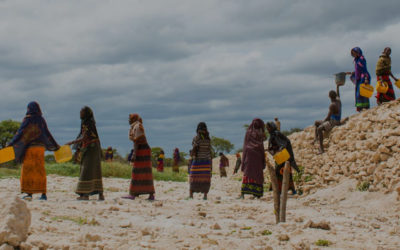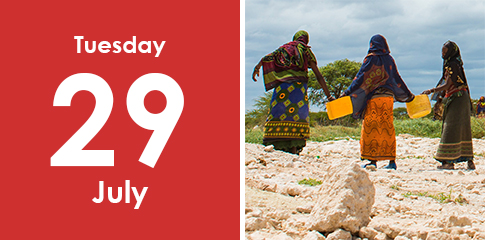At the 2024 annual meeting of the World Economic Forum (WEF), world leaders shared an increasing sense of urgency to effectively address climate change, biodiversity loss, and environmental degradation. The scientific evidence is clear, but action lags behind, and the gap is growing while widening inequality leads to political backlash and deadlocks.
The role of nature-based solutions is vital for sustainable prosperity. We need to leverage professionals’ knowledge, skills and experiences acting for impactful systems change.
In this context, the Executive Education launched a new Executive Certificate entitled “Nature-Positive Economy”, to empower key stakeholders in driving the social and economic transformations required for shared, sustainable prosperity.
On this occasion, we asked a few questions to our Lead Academic Advisor, Gilles Carbonnier, who is Professor of Development Economics at the Graduate Institute and Vice-President of the International Committee of the Red Cross.

In your opinion, how can we accelerate the transformative agenda toward a nature-positive economy? How can we scale up nature-based solutions?
For this to happen, we need to work on systems change. As our natural and social environments are complex systems, one may feel discouraged by the sheer complexity of systemic transformation. What seems to be a promising solution can become part of the problem. Take the example of the first generation of biofuels: growing sugar cane, corn, and soybean to fuel cars ended up increasing food prices, aggravating hunger, and accelerating biodiversity loss.
Yet targeted action can have vastly positive impacts. Allow me an analogy with traditional human body healing: Acupuncture consists of identifying systemic nodes (or body meridians): planting a needle in the right spot can stimulate the entire immune system, amplifying the healing effect and restoring body balance.
How do we identify and work on such systemic nodes when it comes to nature and the economy? It is important to consider four major actors (or institutions):
- Markets, including business and finance
- Governments, including global governance mechanisms and political dynamics associated with diverse political regimes.
- Science and technology, including the role of research and innovation (e.g. AI risks and potential).
- Civil society, including the behaviour, wellbeing and capabilities of each of us.
You are the Academic Advisor of the new CAS Nature-Positive Economy. Could you tell us more about this programme? What are the key outcomes?
We will draw on the collective intelligence of top academics, policymakers and practitioners to address system change and achieve positive impacts. We will situate nature-based solutions within broader system change, including:
- The energy transition
- Resilient cities and infrastructure
- Sustainable agriculture and food systems
- A regenerative, circular economy
- Our natural environment, including the oceans, forests and the atmosphere
- The pursuit of a good and healthy life, which concerns us all.
While we will set the stage and discuss the fundamentals in the first module, the second and third modules will deal with trade, finance, consumption, and production. The final module will focus on science and technology. In each module, participants will be able to acquire and apply cutting-edge knowledge in class as well as practical tools and methods in group and simulation exercises. They will also engage with policymakers, experts and key figures within International Geneva and participate in exclusive encounters with people who develop impactful nature-positive solutions and models.
Who is this programme for?
This programme is specifically designed for mid to senior-level professionals across the public and private sectors, civil society, and philanthropists. It caters to individuals actively engaged or aspiring to make a positive impact in key domains, including environmental governance and policy-making, corporate responsibility, sustainable finance and development, biodiversity conservation, climate and disaster risks, energy transition, and natural resources management.
It’s time to step up and make a real impact. Businesses, governments and financial institutions must actively engage in nature-positive initiatives to create a new operating model based on regeneration, resilience and circularity.
This decade is our chance to recognise the true value of nature to which we belong, put it on the path to recovery, and set us on a course where nature, people and economies can thrive together. Join us in making a difference for a better future!
The Nature-Positive Economy programme starts on 1 July 2024. Consult our website for more information: executive.graduateinstitute.ch/npe









0 Comments